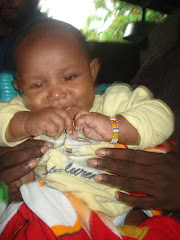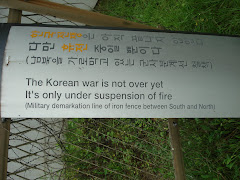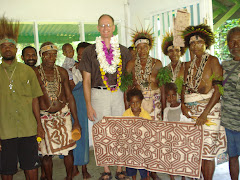Religion and food are two things I am always curious about. When I travel I want to see churches and temples and I want to try local food. I have been interested in these things since I as a teenager reading
Gourmet Magazine, vicariously traveling the world with Lillian Langseth-Christiansen and Ronny Jacques (the photographer). Of course then I’d drive my mother crazy trying to buy exotic ingredients for the recipes that followed each article.
The food gave a sense of the exotic, but also provided a way to feel what it might be like to live in a foreign country; at least I could eat what they ate, I told myself. Religion, on the other hand, appeared in
Gourmet as romantic cathedrals or charming devotees praying in romantic places to be admired before going to a charming little restaurant where they serve the finest ceviche, or whatever. As my vocation developed my interest in religion became a personal search for meaning and connection. My sense of calling first struck me most forcefully standing in Sacre Coeur in
Paris, staring up at the depiction of Christ in the dome, while all those charming Parisians bustled about lighting candles before going home for their
coq au vin. Now that I am more or less always on the road, I still look for local food, and opportunities to pray.
In Korea I have had some amazing meals and some extraordinary encounters with religion, both Christianity and Buddhism. First the food! Every restaurant we’ve eaten in has served meals on low coffee table height tables. I find it excruciating until the legs go completely numb. Once numbness sets in, I don’t feel any pain (until I try to stand up, that is!). But authentic eating experiences are serious business, so I would never sit in a chair. No pain, no gain. I am afraid I’ll fail as a restaurant reviewer for Gourmet because I didn’t have a notepad to write down the names of the things I ate. But this is a Franciscan blog, anyway. The brothers weren’t always too sure what it was either, or at least not the English translation. But on my first day we ate walnut jelly cut in cubes with a fiery hot chili sauce. Christopher John said it was a real test of chop stick proficiency if you could get the jelly to your mouth without wearing it. Served with this was a plate of noodles and fried tofu. Now were the noodles buckwheat noodles. Some said yes, some said no. I am not sure if we were all sure what we were talking about, but we all had opinions, and the noodles were delicious! Small paper cups of Nescafe gave the meal an authentically ethnic close.
Another night, after touring the border with the communists and prowling around in the dank tunnels the North Koreans have burrowed under the border, we were starving. So we went to a favorite Franciscan restaurant (i.e. cheap) and squatted around a low round griddle. I was given a place in the corner so I could lean against a wall. A hostess came and unceremoniously dumped on the griddle a huge bowl of chopped cabbage, mixed with rice cakes, yams, and chicken coated in the favorite fiery hot chili sauce. This was stirred around until she finally pronounced it safe to eat (no raw chicken bits). It was fantastic! The cabbage had become soft and sweet, and the yam provided a lovely counterpoint texture. The chili made my nose run, so it was probably just about right.
So we went to a favorite Franciscan restaurant (i.e. cheap) and squatted around a low round griddle. I was given a place in the corner so I could lean against a wall. A hostess came and unceremoniously dumped on the griddle a huge bowl of chopped cabbage, mixed with rice cakes, yams, and chicken coated in the favorite fiery hot chili sauce. This was stirred around until she finally pronounced it safe to eat (no raw chicken bits). It was fantastic! The cabbage had become soft and sweet, and the yam provided a lovely counterpoint texture. The chili made my nose run, so it was probably just about right.
Traveling by bus to visit our Franciscan sisters in Gumi, Br. Christopher John contacted some friends of his who are very well off. They met us and took us to a fabulous restaurant where there was a well under the table and portable seat backs to rest against: first class. Lunch was a banquet: octopus, sting ray (while all these are ordinary fish, I couldn’t help thinking of Dame Edna’s comment, “nothing so scrumptious as an endangered species!”), chicken, beef in teriyaki-tasting sauce, and about 8 kinds of kimchee. Kimchee can be liquid (it tastes like the juice from a sauerkraut jar), or slices of pickled radish, or large pieces of cabbage with red chili sauce, green beans and leaves and garlic, sesame leaves: it seems the sky is the limit. We ate small rice balls that were brought to the table wrapped in leaves, slices of yam, acorn squash and chunks of corn on the cob, watermelon, noodles in broth.
Another night the retired Bishop came for evening prayer and took us out to dinner to a restaurant which featured 101 ways to eat tofu. They fried it at our table and we added flavor from a flotilla of small side dishes. Then a large tureen of boiling red broth with large pieces of tofu was brought to the table. No matter what you do to it, tofu is tofu—and I enjoyed every bite.
Religion is going to get a bit short changed here, I am running out of time: have to pack to go to Australia. Nevertheless, the brother’s chapel is wonderful.  The floor is covered with lacquered paper, and again we crouch on cushions. The lectern is a traditional Korean desk and the altar is a low table; we saw exquisite examples of these kind of furnishings in Gyeongbokgung, the royal palace in Seoul.
The floor is covered with lacquered paper, and again we crouch on cushions. The lectern is a traditional Korean desk and the altar is a low table; we saw exquisite examples of these kind of furnishings in Gyeongbokgung, the royal palace in Seoul.
Visiting the Korean Franciscan Sisters in Gumi, we had a terrific liturgy in a somewhat Victorian-looking chapel. Pictured here is the inside of their home.
My hankering for exotic religion got satisfied when we visited a Buddhist temple in Seoul. The monks had put up many colorful lanterns as a protest against the President of Korea because he has systematically curtailed their life.  The liberal Christians also protest against him for he same reason. He is particularly fond of his very conservative Protestant faith. I always like to see religion in the public forum, so to speak. In the area around the temple we could hear the people chanting. Peeking through the doors, I saw rank on rank of lights burning in front of some very impressive statues.
The liberal Christians also protest against him for he same reason. He is particularly fond of his very conservative Protestant faith. I always like to see religion in the public forum, so to speak. In the area around the temple we could hear the people chanting. Peeking through the doors, I saw rank on rank of lights burning in front of some very impressive statues.
I watched a Buddhist monk walk across the courtyard. He looked very relaxed, a bit focused on meeting the person he was walking towards: smiling at her, and bowing his head as he walked. I suddenly had a memory of all the times I’d be walking towards the friary and see somebody I knew waiting by the door. You could hear the brothers singing in the chapel, smell dinner cooking in the kitchen. My ordinary is another person’s exotic. I find deep reassurance and hope watching this small Korean encounter; we all do so many of the same things, in similar ways. Life is beautiful and I feel vulnerable to it.
Francis always told his brothers to go among people of different cultures and simply share their way of life. If the example of the brothers’ life provoked questions, well and good; then was the chance to share the truth of Jesus Christ. Learning to go among the peoples of the earth with respect and love, I pray they see me and recognize something too. After swapping recipes we may get down to deeper things, deeper hungers, greater hopes and possibilities.
Hanging near the border with North Korea is a large bell. It is made of wood or papier mache or something, not metal. It is called the Peace Bell.  It stands as sign of the hope and longing for the people of Korea, and people everywhere, for peace in this world. Never have wars sorted people out. I have a great deal more faith in travel writers, cooks, monks and friars.
It stands as sign of the hope and longing for the people of Korea, and people everywhere, for peace in this world. Never have wars sorted people out. I have a great deal more faith in travel writers, cooks, monks and friars.
 So we went to a favorite
So we went to a favorite  The floor is covered with lacquered paper, and again we crouch on cushions. The lectern is a traditional Korean desk and the altar is a low table; we saw exquisite examples of these kind of furnishings in Gyeongbokgung, the royal palace in
The floor is covered with lacquered paper, and again we crouch on cushions. The lectern is a traditional Korean desk and the altar is a low table; we saw exquisite examples of these kind of furnishings in Gyeongbokgung, the royal palace in  The liberal Christians also protest against him for he same reason. He is particularly fond of his very conservative Protestant faith. I always like to see religion in the public forum, so to speak. In the area around the temple we could hear the people chanting. Peeking through the doors, I saw rank on rank of lights burning in front of some very impressive statues.
The liberal Christians also protest against him for he same reason. He is particularly fond of his very conservative Protestant faith. I always like to see religion in the public forum, so to speak. In the area around the temple we could hear the people chanting. Peeking through the doors, I saw rank on rank of lights burning in front of some very impressive statues. It stands as sign of the hope and longing for the people of
It stands as sign of the hope and longing for the people of 













